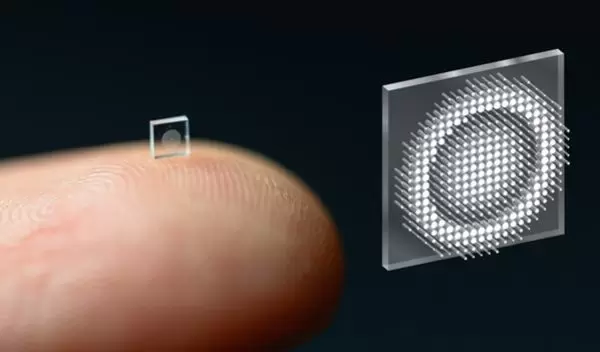
Camera the size of a salt grain captures clear, full color images
The effectiveness of micro-sized cameras in capturing images used in medical diagnostics and robotic sensors has been hindered by technology that produces distorted images with a limited field of view. Now, researchers at Princeton University and the University of Washington, partially funded by the U.S. National Science Foundation, have developed a camera the size of a grain of coarse salt -- just half a millimeter wide -- that captures clear, full-color images.
The neural nano-optics system could be used for minimally invasive medical imaging procedures; to improve imaging for robots with size and weight constraints; and to turn surfaces into high-resolution cameras. The researchers published the results in Nature Communications.
The neural nano-optics system has more than one million cylindrical posts that function as optical antennae. The technology integrates optical surface design and signal processing algorithms to produce an image and can be manufactured on the same scale as a microchip. Previous technology required a laboratory or ideal conditions to produce high-quality images.
"We could turn individual surfaces into cameras that have ultra-high resolution, so you wouldn't need three cameras on the back of your phone anymore, but the whole back of your phone would become one giant camera," said study senior author Felix Heide of Princeton.
The researchers are adding more computational abilities to the camera, improving image quality and adding capabilities for object detection and other sensing functions relevant to medicine and robotics.
Andrew Wells, a program director in NSF's Directorate for Engineering, added, "Fundamental research in the use of artificial intelligence methods to create and resolve images from nontraditional optics has allowed these investigators to build image sensors with resolution comparable to that of much bulkier cameras. NSF fosters such multidisciplinary studies at the convergence of computer science, electronics and manufacturing."


